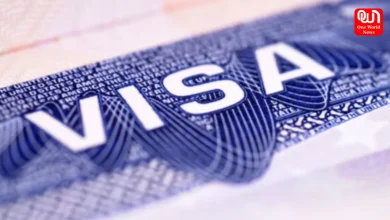US Army Charges Travis King with Desertion
A complex case involving US Army Pvt. Travis King unfolds, with charges of desertion and explicit material possession after his return from North Korea, leaving unanswered questions.
US Army Charges Travis King with Desertion After Return from North Korea: A Complex Case Unfolds with Serious Charges and Questions Raised.
In a recent incident within the US Army, Pvt. Travis King, known for his high-profile escape to North Korea and return, is now confronted with a range of grave charges, including desertion and child-explicit material possession. The specifics of the eight counts against Pvt. King has been disclosed in a charging document. However, due to the yet-to-be-publicly-announced nature of the charges, officials who divulged his confinement chose to remain anonymous. This case has attracted significant attention and raises questions about military discipline and legal proceedings within the US Army.
This development has undoubtedly left King’s family and those following the case concerned about his well-being. In a heartfelt statement, King’s mother, Claudine Gates, expressed her unconditional love for her son and deep worry about his mental health. She called for the presumption of his innocence, emphasizing the importance of a fair and just legal process.
Pvt. King: Extensive Serious Charges
The charges against Pvt. Travis King is extensive and carries significant consequences. Desertion is among the most serious allegations and could result in imprisonment for up to three years. In addition to desertion, King faces accusations of physical altercations with fellow officers, unlawful alcohol possession, making false statements, and possessing explicit material featuring a child. The latter charge dates back to July 10, the same day King was released from a South Korean prison where he had served nearly two months for assault charges.
What adds complexity to this case is the sequence of events that led to King’s return to the United States. After being set to be sent to Fort Bliss, Texas, where he could have faced additional disciplinary actions and possible discharge, King made an unexpected move. He was escorted to the airport but chose not to board the plane. Instead, he joined a civilian tour of the Korean border village of Panmunjom. In a daring move, he ran across the heavily fortified border from South Korea into North Korea, becoming the first American detained in North Korea in nearly five years.
Read more:-US Soldiers learn Indian Army’s mantra to react
Pvt. King’s Swift Return
Surprisingly, King’s stay in North Korea lasted only about two months before Pyongyang abruptly announced his expulsion. He was flown to an Air Force base in Texas on September 28. This remarkable return was made possible through the assistance of Swedish officials. They escorted King to the Chinese border, where he was met by U.S. Ambassador to China Nicholas Burns, the Swedish ambassador to China, and at least one U.S. Defense Department official. From there, he was flown to a U.S. military base in South Korea before heading back to the United States.
Upon returning to the U.S., King was taken to Brooke Army Medical Center at Fort Sam Houston, Texas, for a thorough reintegration process. This included medical exams, psychological assessments, debriefings, and the opportunity to reunite with his family. Throughout this period, King was legally kept in military custody due to his voluntary entry into enemy hands.
While the reasons for North Korea’s decision to release King remain unknown, it is suspected that Pyongyang determined that, as a low-ranking serviceman, he held little value in terms of leverage or information. King joined the Army in January 2021 and served as a cavalry scout.
AWOL vs. Desertion: Key Distinction
During King’s absence, the Army classified him as absent without leave (AWOL), opting not to label him as a deserter, which carries far more severe consequences. To be declared a deserter, the Army would need to conclude that King had intentionally left and intended to remain away permanently. In times of war, desertion can even carry the death penalty. AWOL service members can be absent for several days but may return voluntarily. The punishment can include confinement in the brig, forfeiture of pay, or dishonourable discharge, with the severity based on factors like the duration of absence and the manner of return.
Read more:-Kulgam Encounter Update: 3 Army Soldiers Killed
Serious Charges With Limited Details
The charging document outlining the allegations against King provides limited detail on each count, but it does accuse him of knowingly possessing explicit material involving a child, dated July 10. Furthermore, it states that he solicited a user of Snapchat to create images of underage sexual activity. It’s important to note that the document reveals that transactions on Snapchat were not secure or private and were accessible to the government, making it likely that these activities left a digital trail.
As this case unfolds, it will continue to draw attention and raise questions about the circumstances surrounding King’s actions, his experiences in North Korea, and the legal process he now faces.
Liked this post?
Register at One World News to never miss out on videos, celeb interviews, and best reads.








